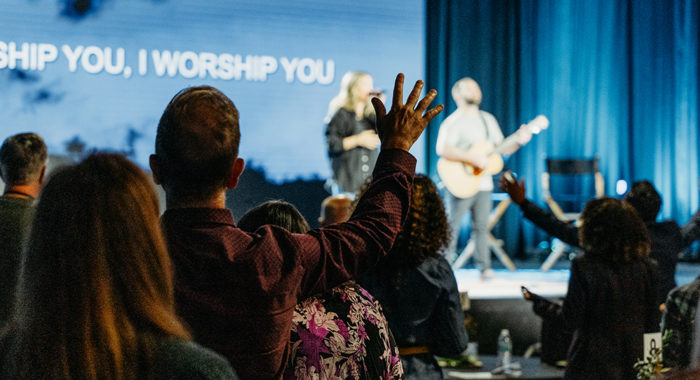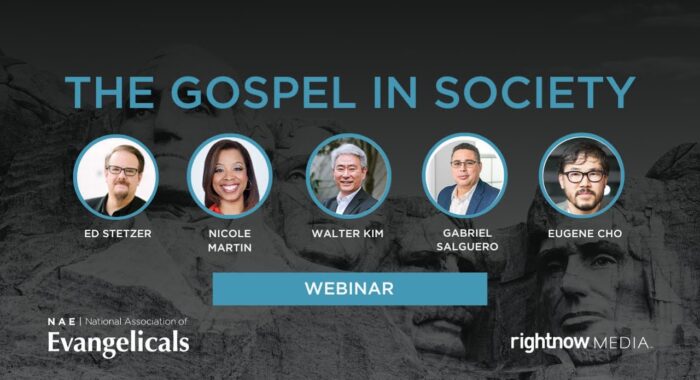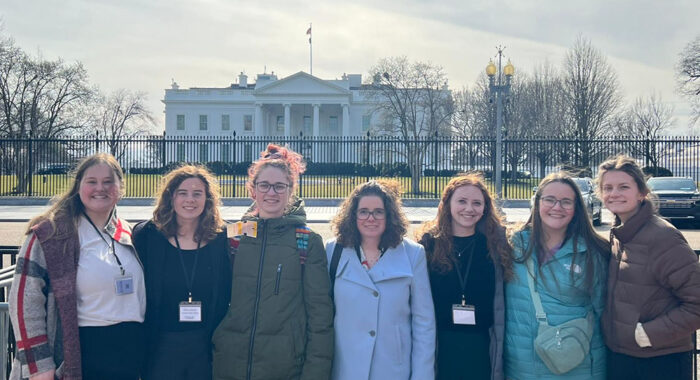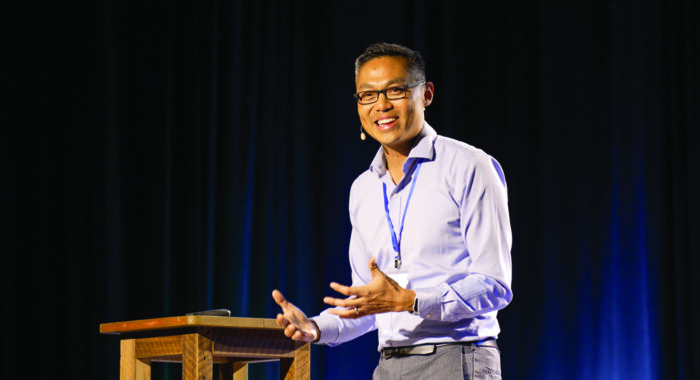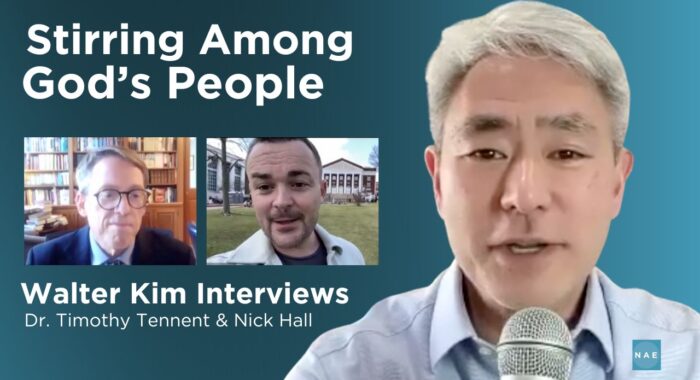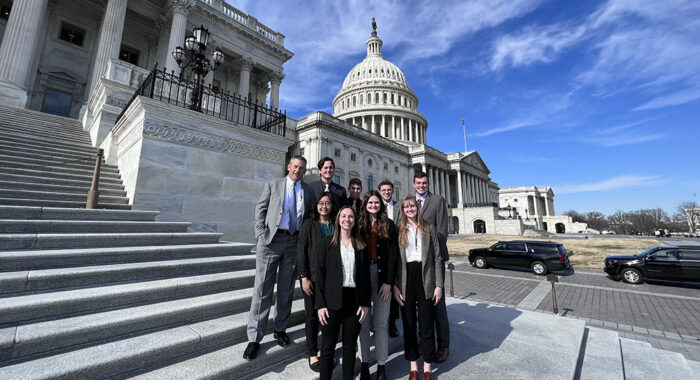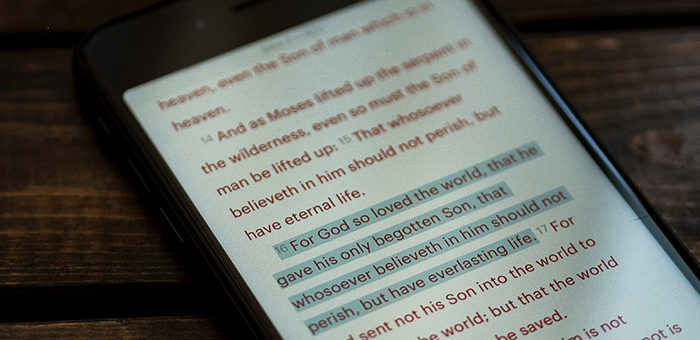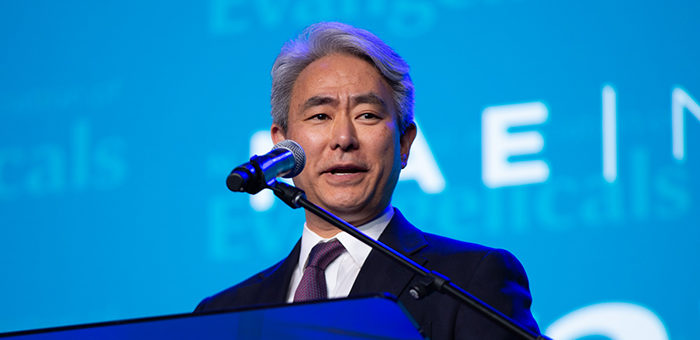Gen Z is asking the Church, “Do you want my generation?” How will we answer? And what are we doing about it? More than anything, this generation wants to be seen and valued, and unfortunately many don’t think the Church is showing up for them. Young people aren’t in churches because they don’t feel wanted or valued.
Born between 1997 and 2012, Gen Z makes up between 74 to 86 million people in America. As an evangelist, I believe Gen Z has the greatest potential to change the world for the gospel than any generation before. Major brands and organizations have taken notice of this rising workforce and consumer base, investing countless sums of money to capture their imagination and benefit from their talent.
Church, it’s time for Gen Z to become our priority.
Not only do we want them engaged in the Church, we need them if there’s going to be a narrative of faith in our nation’s future. And while many will state the negatives of this generation, I have experienced them to be incredibly passionate about Jesus, incredibly creative, and able to reach an ever-changing world with ease — because this is the world in which they’ve been raised. God loves this generation, and so do we! If they are going to be our future, we have to make them our present.
The Greatest Cause
Many call Gen Z the activist generation, because they seek causes that make a difference. Put another way, they want to see the gospel before they are willing to hear it. Churches that prioritize Gen Z are better because their presentation of the gospel becomes more holistic and empathetic.
And if we make time to see and hear this generation, we will find they are hungry to learn. Imagine what will happen when this “Cause Generation” is connected to the greatest cause in history … Jesus! I truly believe that as we disciple this generation, they will complete the Great Commission by marrying it to the Great Commandment!
Questions to Engage Gen Z
We must start by asking ourselves tough questions — questions that will challenge our thoughts, our wallets and even the leadership structures in our churches. These questions are worth leaning into, so that we might see the next generation unleashed with their full potential for God’s glory.
There are four areas we must begin to evaluate if we want to show Gen Z we care.
- Time – Show me your calendar, and I can show you what you value. Are you making time for Gen Z?
- Talent – Is Gen Z (those under 25) represented on your stage or staff?
- Treasure – How is this generation represented in your budget? Does your treasure represent that you value this missing generation?
- Risk – If they can’t hurt you, then you aren’t invested in them. They are young. They may do or say things that you wouldn’t. But the Holy Spirit lives inside them! Empowerment comes at a cost. If we aren’t willing to risk our reputation to give this generation the platform, they will find a space that does.
It’s not rocket science. The churches that are winning young people to Jesus, are the churches featuring young people. Our wallet, our programs, and our priorities must prove we value them.
Gen Z is going to change the world, the unanswered question is … for what? Church, do we want Gen Z?
An Example to Live By
The history of leaders in the nation of Israel began with Moses. Moses led Israelites for 40 years. He was a leader who exemplified humility, empathy, wisdom and heroism, and he followed God’s commands. Even when Moses went through hard times, he sought favor from the Lord and was willing to lead many. As a result of his faithfulness and obedience, God kept his promise with Moses.
In contrast, the later appointed king of Israel — Saul — was a man who sought his own glory. Saul was disobedient to God’s commands, resented those who disagreed with him and surrounded himself with people who only supported his ideas. When Saul realized David would be the next king, jealousy and envy crept into his life through pride. Saul failed miserably as a leader.
Are you a Moses or a Saul? Are you seeking to reach the next generation for God’s glory, or are you seeking your own name to be praised? While you consider if you are a Moses or a Saul, also evaluate if you are raising up the next generation of Moseses who will humbly lead the Church.
If we lead like Moses, what will we see happen in the Church today and in the next generation?
Watch Nick Hall's session at Flourish ![Arrow]()
Nick Hall is founder and chief communicator for PULSE, a student-led prayer and evangelism movement. He is regularly featured as a speaker for conferences, training events and festivals around the world. Hall sits on several leadership teams, including the U.S. Lausanne Committee, Billy Graham Evangelistic Association, Mission American Coalition and the National Association of Evangelicals. He holds a bachelor’s degree from North Dakota State University and a master’s degree in leadership and Christian thought from Bethel Seminary.




 View All Articles
View All Articles 






